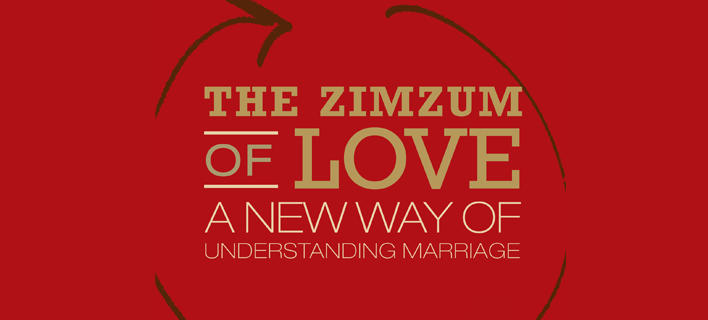Honestly, I’m still not really clear on the zimzum part of this book. Rob and Kristen seem to have connected with the metaphor strongly, but I’m not finding in it everything they did. I’m not sure how Rob was introduced to the concept, since what I can find has it appearing in Life of Pi and Kaballah, and Rob says it comes from “the rabbinic tradition.” I know I have Jewish readers, so if you could help me out with where this term comes from that would be spectacular.
At any rate, Rob and Kristen explain it as a step God had to take to create the universe– he had to withdraw from a certain space in order to create a world that wasn’t himself, that was separate from himself. This supposed retraction is zimzum: making an empty space for something else to fill. They apply this idea to marriage because they think that marriage is all about making space for the other person in our lives, and that makes sense to me. Where they go after that sort of loses me, but it’s a lovely image how they describe it.
I think the most important concept they’re emphasizing in the opening chapters is mutuality. “Mutuality” is frequently used as another word for egalitarianism in marriage, especially in Christian circles. It’s the idea that Rob and Kristen mention– that “I am my beloved’s and my beloved is mine” (41), and one that many Christian find in passages like “you are not your own.” They argue that the ideal for marriage is mutual giving, mutual sacrifice, that no relationship this intimate can survive in an environment where one is expected to lead and the other serve.
They talk about it in terms of the zimzum being “responsive,” which is an idea I think gets skipped over in many (if not all) Christian marriage-advice books. What they’re referring to could probably be summed up in the phrase “you have to put your own oxygen mask on first in order to help others”– essentially, if you’re not healthy and stable, than that’s going to contribute to your marriage being unhealthy and unstable. I wish this concept wasn’t so revolutionary by Christian marriage-book standards, but it is. If all I’m ever doing in my marriage is giving and serving and self-sacrificing without giving any thought to my own emotional burnout, that’s not going to be good long-term.
It’s also important to understand that in terms of your partner as well as yourself. They can’t contribute to a healthy marriage if you force them to make their lives all about you. Rob and Kristen bring it up like this: “You make deals, and then you laugh about how absurd it is to make deals because you would have done it anyway.”
For example, my partner loves building model airplanes, and he got eight different kits for Christmas as well as an airbrush. After he had the airbrush assembled, he was excited about working on them, and casually mentioned something about doing one every month– which is where I stopped him, because in order to do one every month he’d have to work on it every single weekend, virtually all day. And while I get a kick out of the painting and help him do the extremely detailed work, I have no interesting in the actual assemblage or putting the decals on … which meant that I’d either a) have to do something I found tedious and boring every weekend in order to spend time with him or b) not spend time with him.
I was not fond of either of those ideas, and responded with “well, maybe not one a month. I’m fine with every other weekend, but not all of them”– and once he’d thought about it, he agreed. Which means that we’d just “struck a deal,” but in reality he never would have worked on those planes every single weekend, because he wants to spend time with me as much as I want to spend time with him.
One of the negative things they talk about is “the scorecard”– how easy it is to become resentful if you feel that your partner isn’t pulling their weight, so you start keeping track of how often they unload the dishwasher and such (35).
I’m practically still a newlywed (celebrated our second anniversary this month), so I have to admit I haven’t experienced The Scorecard in my marriage yet, but I have felt that way in some friendships I’ve had. Right now, though, in my marriage if he doesn’t unload the dishwasher or doesn’t help with the laundry or doesn’t help keep the apartment tidy … I’m not particularly concerned. I imagine that won’t always be true, especially if we throw children into the mix.
Anyway, I’m enjoying the book, and since this is my second read-through, there’s actually quite a bit more meat here than I’d initially realized. It’s presented so conversationally I think it’s easy to skip over some of the more noteworthy ideas.

